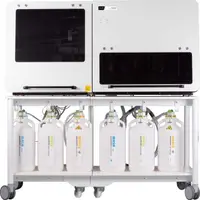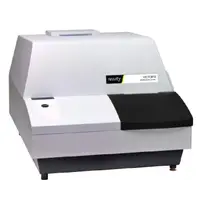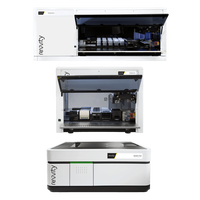Background
Patau syndrome, also called trisomy 13, is a chromosomal disorder caused by the presence of an extra chromosome 13 in all or some of the cells.
- In most cases, the third chromosome 13 is present in all cells (primary trisomy)
- In other cases, an extra portion of chromosome 13 is attached to another chromosome (“unbalanced translocation”) which may be due to a balanced translocation in one parent
- Another form of trisomy 13 is when the extra copy of chromosome 13 is only found in some cells while the other cells have the typical two copies (“mosaicism”)
Clinical diagnosis
Patau syndrome is a rare condition that typically causes significant intellectual disabilities, heart defects, developmental problems, weakness in muscles and other physical issues. The syndrome carries a high mortality rate: in utero death occurs in over 95% of fetuses with this chromosomal anomaly and only few babies survive to their first birthday. Profound mental retardation and developmental delay occur in survivors. Seizures and feeding difficulties are also common.
Testing
Testing for Patau syndrome can be performed during pregnancy, as early as the 1st trimester. Tests fall into two categories: either screening or diagnostic tests. While diagnostic tests can provide a definitive answer as to whether there is Patau syndrome or not, they are invasive and are thus associated with a small chance of miscarriage. Screening tests, on the other hand, are non-invasive (blood tests or ultrasounds) and thus have no associated increased risk for miscarriage. Although they are safe for the pregnancy, they are not diagnostic and can only say whether there is a high or low chance that the baby has Patau syndrome.
Treatment
Currently, there is no cure for Patau syndrome. Management of children with trisomy 13 is planned on a case-by-case basis and depends on the individual circumstances of the patient. The treatment of the syndrome focuses on the particular physical problems with which each child is born. Surgery may be necessary to repair heart defects or body abnormalities. Many infants do not survive the first few days or weeks due to severe neurological problems or complex heart defects.
Inheritance
Patau syndrome occurs in approximately 1 out of every 16,000 live-born infants. Most cases of Patau syndrome are sporadic and are not inherited. However, Patau syndrome caused by a translocation can be inherited. In this scenario, an unaffected carrier parent can have a rearrangement of genetic material between chromosome 13 and another chromosome. This is called a balanced translocation because there is no extra or missing material from the chromosomes. Although they do not have Patau syndrome, people who carry this type of balanced translocation are at an increased risk of having children with the condition.































